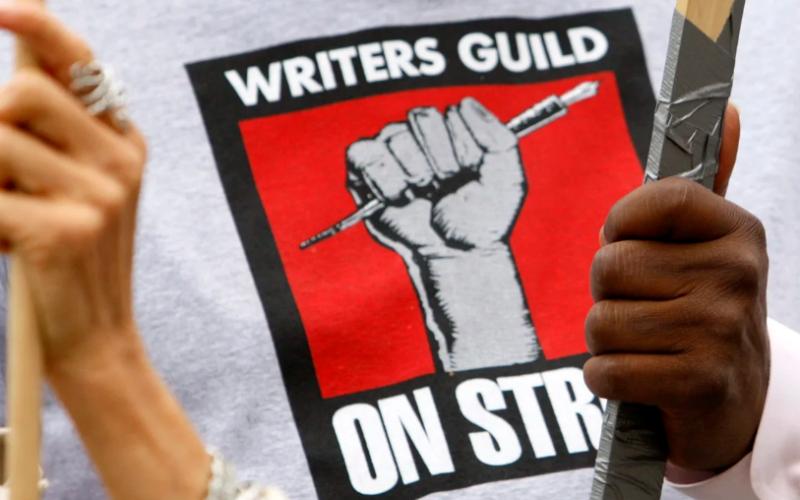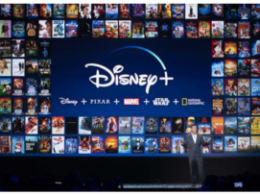The potential strike of Hollywood screenwriters has Hollywood on edge. A costly strike that might shut down production on most television series is rapidly approaching, delaying the autumn premieres of several programs that had previously been scheduled to return this summer.
If a new contract is not agreed upon by Monday at 11:59 p.m. PDT, Writers Guild of America members voted 98% in favor of going on strike last month. There is less than a day till the deadline, and the two sides still seem very far apart.
The conversations are happening at a moment of great suffering for both parties. As a result of a decline in stock price, several media and technology companies that produce shows using the authors have had to drastically reduce expenses, including laying off employees. However, the shift in the industry from traditional broadcast and cable programming to streaming services has resulted in fewer job opportunities and the loss of some sources of income for writers, many of whom need help to support themselves with writing.
Read more: Morgan Wallen’s disappointed concert-goers.
The union stated, “The companies have used the transition to streaming to cut writer pay… worsening working conditions for series writers of all levels.” More writers, regardless of experience, are required to work for television networks at the minimum wage, often for fewer weeks of pay. Over the past decade, series budgets have increased dramatically, but writer-producer revenue has decreased on average.
A month ago, union negotiator Danielle Sanchez-Witzel sent a video message to members saying, “This is not an ordinary negotiating cycle.” We’re working for the financial security of authors and the future of our profession.
Amazon (AMZN), Apple (AAPL), CBS (VIAC), Disney (DIS), NBC Universal, Netflix (NFLX), Paramount Global, Sony (SNE), and Warner Bros. Discovery are all represented by the Alliance of Motion Pictures and Television Producers, with whom the union is now in negotiations.
“Our goal continues to be to reach a fair and reasonable agreement,” said management. The AMPTP firms entered these talks with the sector’s long-term viability in mind. Establishing an agreement that benefits both parties is a shared goal, and we are committed to working toward it as a team.
There may be an early conclusion to the seasons of late-night shows, daytime soap operas, and even shows like Saturday Night Live, even though many shows have already filmed their final episodes for the current season.
There is concern that the start of the new season could be delayed if a strike goes on for an extended period; the last walkout by this union, in 2007, lasted for 100 days.
Hollywood attorney and author Jonathan Handel predicts a rise in “reality, news, and sports” programming if the current impasse persists in his new book, Hollywood on Strike! : An Industry at War in the Internet Age.
Handel thinks that a strike is likely and that it could last for several months.
“There’s a lot of unfinished business from 2020 negotiations that were raised then but put on ice by the pandemic,” he said.
He added that investors’ worries about the profitability of streaming services had caused a dramatic shift in the industry’s fundamentals, with several media and technology equities suffering heavy losses in the past 18 months. While the race to amass the most extensive subscriber base was once the industry’s primary objective, today’s focus is squarely on profitability.
“Both the media companies and the tech companies that own streamers are engaged in belt-tightening,” Handel added. Today, profits are the song.
The organization represents 11,500 screenwriters working on network and streaming shows and in film. However, not all of them have jobs at the moment. Strike or no strike, the industry and the economy of Southern California and other places like New York City could be severely impacted if workers decide to leave their job.
According to an estimate by AMPTP, if the writers stop production, as many as 20,000 people might be out of work across as many as 600 shows. Damage from the strike in 2007 was projected to be $2 billion. With inflation considered, that is equivalent to approximately $3 billion today.
It seems unlikely that management will implement the changes the union claims are necessary to ensure its members can earn a living wage. There may even be benefits to dragging this out.
“The issue the writers are striking over are real, they’re meaningful, but their timing couldn’t be worse,” said Tom Nunan, a lecturer at the UCLA School of Theatre, Film, and Television and a film producer and writer.
He added that the media industry was laying off workers, complaining about their financial situation, reconsidering their streaming strategy, and analyzing their more established revenue streams. The studios might lose little if there is a strike and gain a lot. The money you save during a strike will be available immediately.
The authors claim that the streaming revolution should be reflected in their contracts. For many years, writers have relied on residual fees, payments made when a film or television show is played again. However, in the streaming era, where many projects ultimately land, those fees disappear.
Shows have smaller writing staffs and fewer episodes are being made for streaming services than traditional television networks, according to the writers.
“Can this be a career for me?” will still loom over most writers after the strike, says Nunan, even if the union overcomes the issues it has highlighted. That being said, “I know very few writers who pay the bills by writing alone.”









